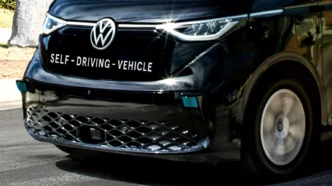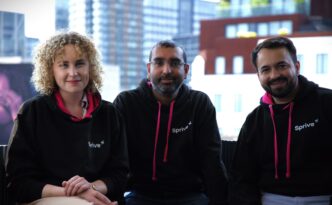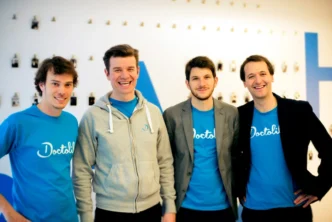Volkswagen and Uber have partnered to launch an innovative self-driving robotaxi service in Los Angeles in 2026. This collaboration combines cutting-edge autonomous technology with electric vehicles, aiming to revolutionize urban transportation while reducing carbon emissions. By leveraging Volkswagen’s electric ID.Buzz and Uber’s robust ride-hailing platform, the two companies plan to transform how people move in the city and contribute to the global push for greener transportation.
The Volkswagen ID.Buzz: An Electric Future
The Volkswagen ID.Buzz, an all-electric vehicle designed for maximum comfort and efficiency, will be at the heart of this new service. With its futuristic design and advanced features, the ID.Buzz offers an environmentally friendly alternative to traditional taxis, making it a standout in the growing trend toward electric vehicles.
This self-driving vehicle is expected to help combat traffic congestion, reduce pollution, and promote sustainability. Volkswagen has long been committed to transitioning to greener alternatives, and the ID.Buzz is a crucial part of this strategy. With zero emissions and a spacious, user-friendly design, the ID.Buzz aims to provide both an innovative and eco-conscious solution for city dwellers. The introduction of this vehicle as part of the robotaxi service is expected to meet the increasing demand for cleaner transportation options in urban areas, particularly in cities like Los Angeles, where air pollution and traffic congestion are persistent issues.
The ID.Buzz’s electric engine offers several advantages over traditional combustion engine vehicles, including quieter operation and significantly lower carbon emissions. By offering a ride-hailing service that uses only electric vehicles, Uber and Volkswagen aim to set a new standard for urban mobility while addressing the need for sustainable transportation solutions. The move is also expected to complement other clean energy initiatives in the city, aligning with California’s ambitious environmental goals.
Uber Role in Transforming Urban Mobility
As the partner responsible for integrating self-driving technology with its ride-hailing platform, Uber plays a pivotal role in this groundbreaking project. The company will utilize its app to allow passengers to hail the autonomous ID.Buzz vehicles, combining convenience with cutting-edge technology.
Uber’s extensive experience in transportation logistics and its large customer base will enable the companies to seamlessly integrate these self-driving cars into the existing ride-hailing ecosystem. This integration is a significant step forward in the development of fully autonomous vehicles, which has been one of Uber’s long-term goals.
While this initiative has the potential to change the way people view urban mobility, it is not without its challenges. Technical hurdles remain in ensuring that the self-driving cars operate safely and efficiently in complex urban environments. Additionally, regulatory issues must be navigated, as cities and countries develop frameworks to oversee autonomous vehicle operations. Public acceptance is another critical factor, as consumers may need time to adjust to the idea of traveling in a vehicle with no human driver.
Despite these challenges, the partnership between Volkswagen and Uber is poised to offer a unique solution for cities struggling with congestion and pollution. The introduction of autonomous electric vehicles could reshape the future of public and private transportation, making it safer, more affordable, and more sustainable for everyone.
The collaboration between Volkswagen and Uber is not just about introducing new technology; it’s about reimagining the entire transportation experience. With the goal of rolling out this self-driving robotaxi service by 2026, both companies are positioning themselves at the forefront of a transportation revolution that could change how people commute for generations to come.
The partnership between Volkswagen and Uber represents a major leap forward in the future of transportation. By combining Volkswagen’s electric ID.Buzz with Uber’s ride-hailing infrastructure, the companies aim to offer a sustainable, autonomous transportation solution that could change the way people travel in urban environments.













